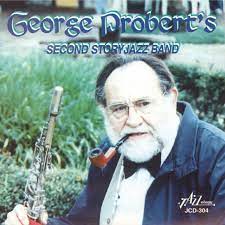
Daily Dose Of Jazz…
George Arthur Probert, Jr. was born on March 5, 1927 in Los Angeles, California and was an autodidact on his instruments. He first played with Bob Scobey from 1950 to 1953 and then went on to play with Kid Ory’s Creole Jazz Band.
Between 1954 and 1969, George played in the Firehouse Five Plus Two Dixieland Revival Band, an ensemble formed by Walt Disney Studios animators. They recorded with Disney composer George Bruns in 1957 and again in 1968.
Probert led his own bands from 1973, touring America and Europe. In 1997 he toured England, Germany & the Netherlands with Big Bill Bissonnette’s International Jazz Band. The all-star group featured Anthony “Tuba Fats” Lacen of New Orleans & British pianist Pat Hawes.
Clarinetist, soprano saxophonist and bandleader George Probert, who also worked as a television and movie music editor, transitioned on January 10, 2015 in Monrovia, California.
More Posts: bandleader,clarinet,history,instrumental,jazz,music
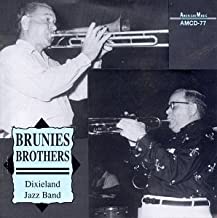
Daily Dose Of Jazz…
Albert “Abbie” Brunies was born on January 19, 1900 in New Orleans, Louisiana into a famous musical family, which counted among its members George Brunies and Merritt Brunies.
He was the leader of the Halfway House Orchestra from 1919 to about 1927, playing at the Halfway House Club in New Orleans. This ensemble recorded for Okeh Records in 1925. Among the musicians who played in this group were New Orleans Rhythm Kings members Charlie Cordella, Mickey Marcour, Leon Rappolo, Sidney Arodin, Bill Eastwood, Joe Loyacano and Leo Adde.
He played in New Orleans into the mid-1940s, after which time he moved to Biloxi, Mississippi. There he played with Merritt in the Brunie Brothers Dixieland Jazz Band. Unfortunately, this ensemble recorded sparsely. Cornetist Abbie Brunies transitioned on October 2, 1978.
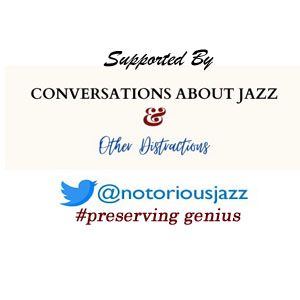
More Posts: cornet,history,instrumental,jazz,music
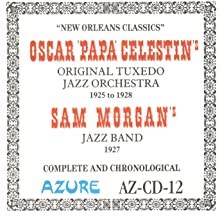
Daily Dose Of Jazz…
Abbey “Chinee Bébé” Foster was born on January 9, 1902 in New Orleans, Louisiana. A self-taught jazz drummer, he played in Storyville with William Ridgley’s Tuxedo Orchestra, and with Buddie Petit in the Eagle Band.
He recorded with Celestin’s Original Tuxedo Jazz Orchestra in 1927. After years of retirement, he made a comeback with Punch Miller’s Band at Preservation Hall in 1961.
On September 12, 1962 drummer Abbey Foster transitioned in his hometown.

More Posts: drums,history,instrumental,jazz,music
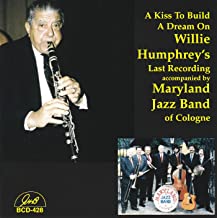
Daily Dose Of Jazz…
Willie James Humphrey was born on December 29, 1900 in New Orleans, Louisiana into a musical family, the son of prominent local clarinetist and music teacher Willie Eli Humphrey. His brothers Earl and Percy also became well known professional musicians.
After establishing himself with such New Orleans bands as the Excelsior and George McCullum’s band, Humphrey traveled north, playing with Lawrence Duhé, and King Oliver in Chicago, Illinois. In the 1920s he made his first recordings in St. Louis, Missouri.
Returning to New Orleans, he played for many years with the Eureka and Young Tuxedo Brass bands, the bands of Paul Barbarin and Sweet Emma Barrett, and the Preservation Hall Jazz Band.
Clarinetist Willie Humphrey, whose playing remained vigorous and continued to grow more inventive in his old age, passed away at 93 on June 7, 1994.
More Posts: clarinet,history,instrumental,jazz,music
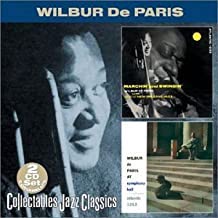
Daily Dose Of Jazz…
Edward L. Gibbs was born on December 25, 1908 in New Haven, Connecticut. A student of the great banjoist and bandleader Elmer Snowden, he went back and forth among three different stringed instruments during his career.
Gibbs began his career late in the 1920s, playing with Wilbur Sweatman, Eubie Blake, and Billy Fowler. He played with Edgar Hayes from 1937 and played with him on a tour of Europe in 1938. After a short stint with Teddy Wilson, he joined Eddie South’s ensemble in 1940, and worked later in the decade with Dave Martin, Luis Russell, and Claude Hopkins.
As a bassist, he led his own trio at the Village Vanguard and played in a trio with Cedric Wallace, but returned to banjo in the 1950s during the Dixieland jazz revival. He played and recorded with Wilbur de Paris among others during this time.
After studying with Ernest Hill, he returned to bass in the middle of the 1950s, but played banjo once again in the 1960s during another surge in interest in the Dixieland groups. He played at the World’s Fair in 1965 and in 1969 he played bass and occasionally banjo as a member of Buzzy Drootin’s Jazz Family, which included Herman Autrey, Benny Morton, Herb Hall, Sonny Drootin on piano and Buzzy on drums. Also, in the late ’60s he was part of a group called The Happy Family who featured him on both banjo and bass.
Banjoist, guitarist, and bassist Eddie Gibbs, who retired from active performance in the 1970s, passed away on November 12, 1994.
More Posts: bandleader,banjo,bass,guitar,history,instrumental,jazz,music


